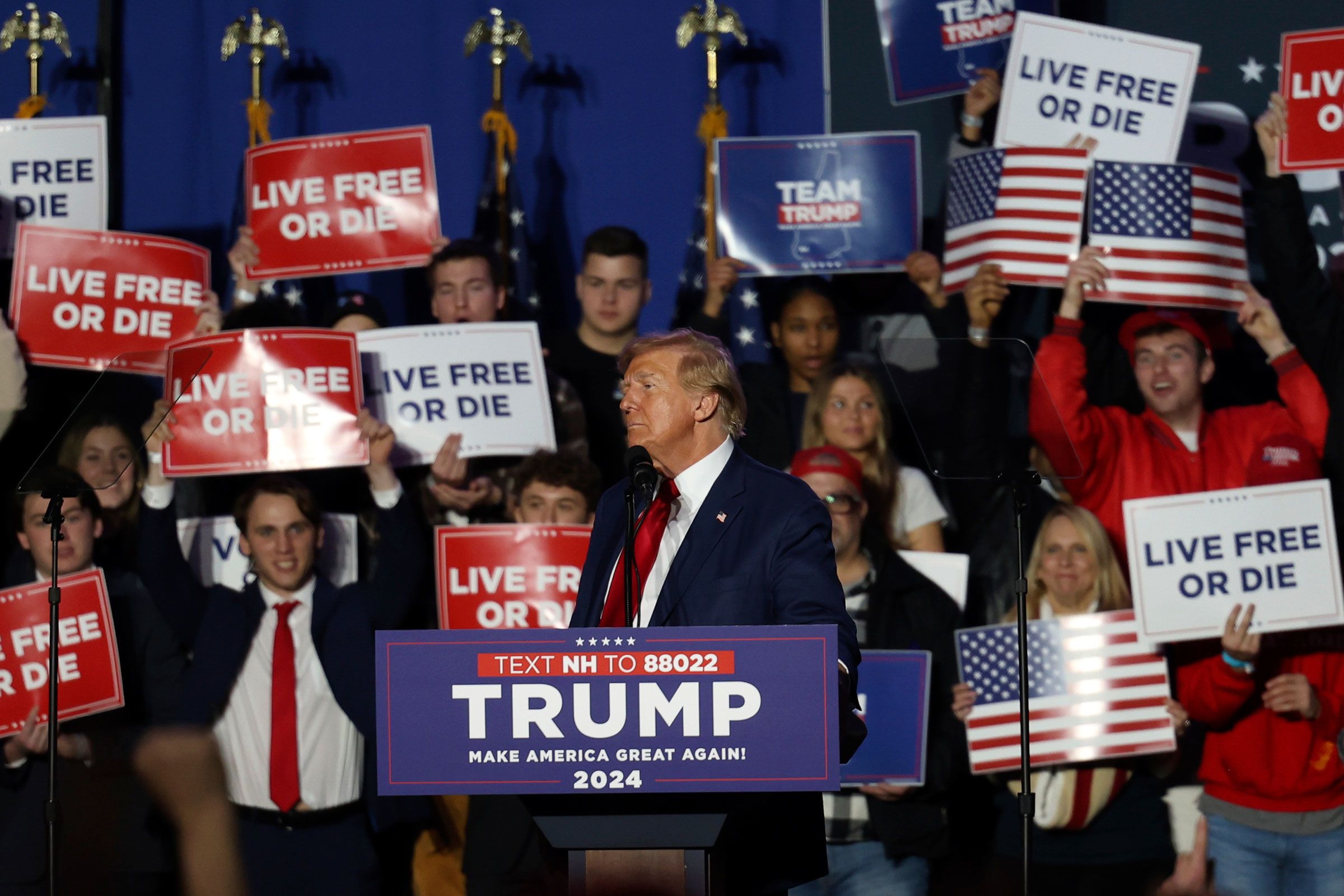Trump’s Disturbing Remarks Stir Controversy
Over the weekend, Donald Trump’s rhetoric took a disturbing turn, causing a stir less than a month before the Iowa caucuses. The leading GOP primary candidate made inflammatory remarks about migrants, accusing them of “poisoning the blood” of the United States. He also quoted Russian President Vladimir Putin’s critique of American democracy, further fueling the controversy. Trump’s comments, made during a rally in New Hampshire, have drawn comparisons to Nazi Germany’s rhetoric, particularly his remarks about migrants from Africa, Asia, and South America.
Trump’s Language: Echoes of Hitler?
President Joe Biden’s reelection campaign and several experts have suggested that Trump’s language mirrors that of Adolf Hitler. They point to passages in Hitler’s manifesto, “Mein Kampf,” where the dictator called for racial purity and accused Jews of “poisoning” German blood. Trump has previously used similar language in an interview with a conservative news outlet, and his decision to repeat it at a rally suggests it may become a regular part of his speeches.
Trump’s History of Racially Charged Language
Trump has a long history of using language that plays on racial prejudice and appeals to the right wing. His recent claim that he wants to be a “dictator” for a day to build his border wall and stop immigration could be dismissed as a joke if he didn’t keep repeating it. At a rally in Reno, Nevada, Trump made baseless claims that migrants are primarily from prisons and mental institutions. He also speculated, without evidence, that Chinese migrants crossing the border could be part of an invading army.
Trump’s Promise to Purge Migrants
Trump pledged to reorient the US government to expel migrants. He claimed that the US is now a “haven for bloodthirsty criminals” and said he would invoke the Alien Enemies Act, a 1798 law, to remove migrants from the country. He also promised to redirect the FBI and Drug Enforcement Administration to border actions.
Trump’s Praise for Authoritarian Leaders
It’s no longer surprising when Trump speaks highly of authoritarian leaders like North Korea’s Kim Jong Un or Hungary’s Viktor Orban. However, Trump took it a step further by arguing that it is Biden who is a “threat to democracy,” not him. To support his claim, Trump quoted Putin, who has criticized the American political system and called Trump’s legal troubles “politically motivated persecution.”
Trump’s Legal Challenges and Increasingly Intense Rhetoric
Trump is currently facing multiple criminal trials. His increasing legal troubles may be contributing to his escalating rhetoric, according to former New Jersey Gov. Chris Christie. Christie suggested that Trump’s controversial comments are a desperate attempt to maintain his popularity as the legal walls close in on him.
Trump’s Use of Warnings to Attack Opponents
Turning warnings about him into rallying cries for his supporters is a classic Trump tactic. He has frequently and falsely referred to the idea that he lost the 2020 election as a “big lie,” coopting it from warnings that his repeated false claims about the election results would ultimately convince his followers. This term also appears in “Mein Kampf.”
Trump’s Influence in the Republican Party
Despite his controversial comments, Trump remains a leading figure in the Republican Party. He leads the Republican primary field in both New Hampshire and Iowa, according to two CBS News/YouGov polls. However, most Republican candidates, unlike Christie, are not publicly criticizing Trump.
Trump’s Future in Politics
Trump’s future in politics remains uncertain. He will have to face his legal challenges and convince his supporters that he is still the right candidate for them. As the first Republicans start making their voices heard in the American process that Trump quoted Putin as saying is rotten, the world will be watching closely.

